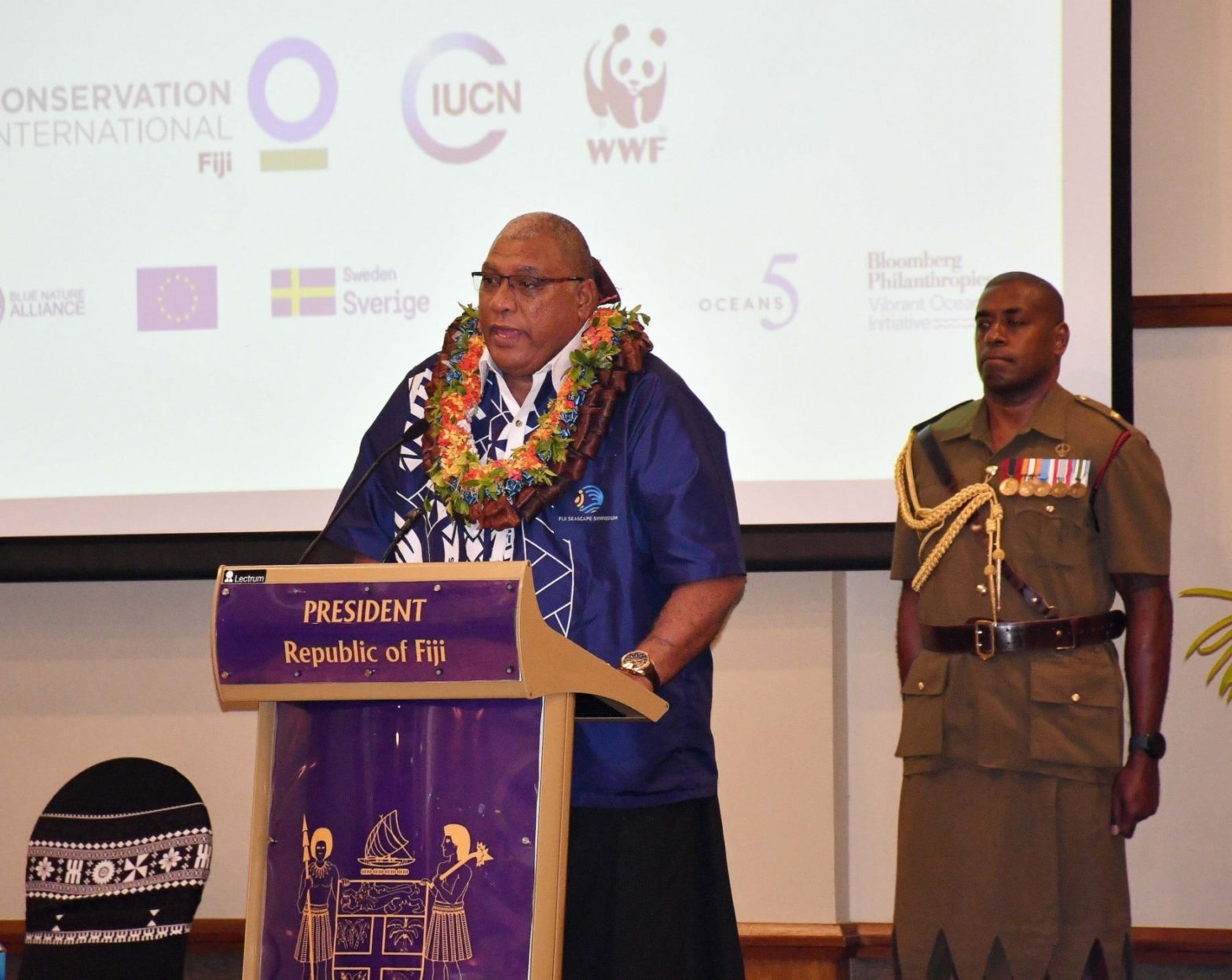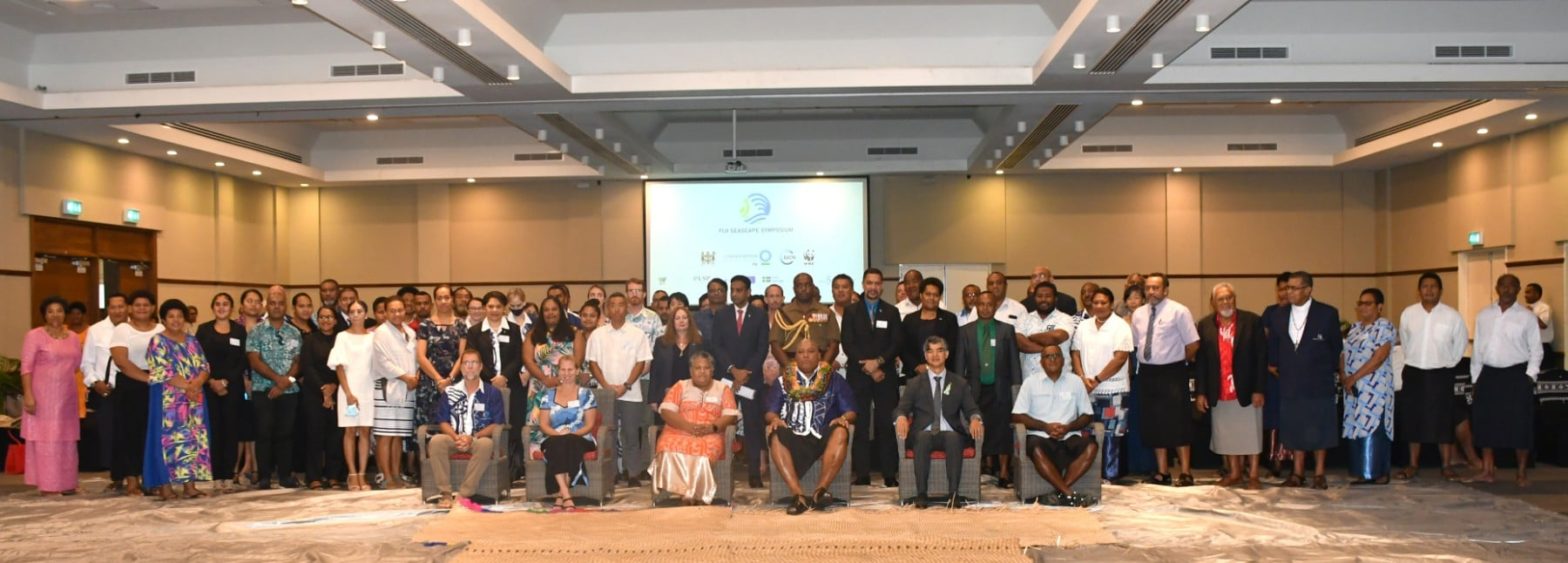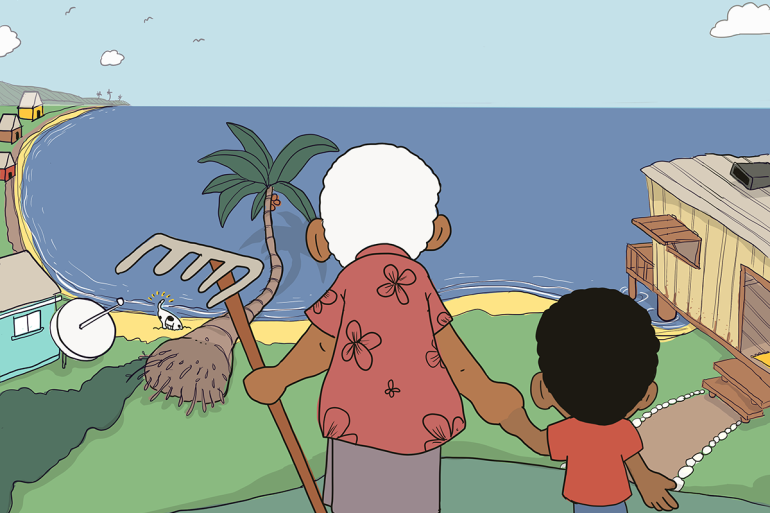WWF-Pacific urge higher ambitions to ensure a safe, resilient, and secure future for the people of the Pacific Islands, humankind and Planet Earth
Earth Hour, the world’s largest grassroots movement for the environment, is set to unite millions of people around the world to show solidarity for both people and planet Earth. Taking place at a particularly crucial moment in time, this year’s event invites people around the globe to unite in a moment of reflection on our relationship with each other and our collective home.
In February, the Intergovernmental Panel on Climate Change (IPCC) released a new report on the impending impacts of a warming world if global emissions continue unchecked, and how adaptation can help reduce vulnerability and manage climate risks in developing countries.
The IPPC report confirms what scientists have been warning about the catastrophic results on the climate if the world reaches average temperatures of 1.5ºC above pre-industrial levels.
According to the World Research Institute, global temperatures have risen by 1.1ºC so far, and already we are seeing an increase in natural disasters such as flooding, hurricanes, and other events. The report warns that the world is set to reach the 1.5ºC level within the next two decades and said that only the most drastic cuts in carbon emissions from now will help prevent an environmental disaster.
Governments at the recent UN COP26 climate talks took some steps in the right direction, but there are still huge gaps that need to be closed and actions that governments must take urgently to avoid a climate catastrophe.
Dr Mark Drew, Director, WWF-Pacific said: “In this crucial decade, efforts must be focused on keeping the 1.5°C goal within reach, adapting to current impacts and building resilience for future climate risk. In 2022, many challenges remain, and we hope to use Earth Hour to send a message of solidarity for both people and the planet. It’s important that we continue with the momentum we have created over the past few years, and secure a commitment by world leaders to urgently step up their efforts to protect nature. We’re asking governments, businesses, financial institutions, civil society and everyone to commit to halt and start reversing the loss of nature. We want to secure the best possible outcome for people and the planet, but we can’t do that without the support of our active global citizens who are ready to join us in taking action to help shape our future.”
“We acknowledge and are grateful for Fiji’s Head of State and the Office of the President, Reserve Bank of Fiji and Fiji Development Bank for spearheading and participating this year whether it’s through strengthening green initiatives within their workplace and among staff to also being part of the synonymous one hour switching off of non-essential lights.”
His Excellency Ratu Wiliame Katonivere, President, Republic of Fiji Islands said: “As we start emerging from the worst impacts of COVID -19 and the catastrophic events of the past years we must create a new normal that puts the people and nature first. We cannot return to business as usual we need to build a nature positive, carbon-neutral and equitable future. In collectively Shaping our future and connecting to Earth, let’s go beyond the hour and pledge to make a meaningful difference for our planet and for our future generations. Everyone has the power to shape our future.”
Shannon Seeto, Solomon Islands Country Manager, WWF-Pacific, said: “The Solomon Islands is already suffering major impacts from a changing climate. People are losing their homes; community livelihoods and infrastructure are being threatened by rising sea levels and intrusion into food gardens and groundwater. This year, Earth Hour is even more important to show solidarity as a global community to people and the planet. The global community is now well aware of the dangers of climate change; and governments, industry and civil society are taking action. But it’s not enough and we need more urgency and higher ambitions to ensure a safe, resilient, and secure future for the people of the Pacific Islands and for humankind who is already experiencing extremes in weather from fires, floods and cyclones. Planet Earth is our collective home and we all need to place the highest priorities on keeping global warming below 1.5 degrees.”
More than 190 countries and territories are expected to stand in solidarity on 26 March for people and the planet this year.
About Earth Hour
Earth Hour is WWF’s flagship global environmental movement. Born in Sydney in 2007, Earth Hour has grown to become the world’s largest grassroots movement for the environment, inspiring individuals, communities, businesses and organisations in more than 190 countries and territories to take tangible environmental action.
Historically, Earth Hour has focused on the climate crisis, but more recently, Earth Hour has strived to address a range of concerns facing people and the planet. The movement recognizes the role of individuals in creating solutions to the planet’s most pressing environmental challenges and harnesses the collective power of its millions of supporters to drive change.
Since its inception in 2007, Earth Hour has inspired global initiatives for the protection of nature, climate, and the environment, helping drive awareness, action and policy change. Highlights of the movement include helping in the creation of a 3.4 million hectare protected marine area in Argentina, a 2,700-hectare Earth Hour forest in Uganda, pushing for a ban on single-use plastics and Styrofoam products in the Ecuadorian capital, and initiating the planting of 20,000 mangrove seedlings in 13 cities in Indonesia.
Earth Hour is kindly supported by Germany’s Federal Ministry of the Environment, Nature Conservation and Nuclear Safety with funding from the International Climate Initiative (IKI), as a part of the project “Scaling up Biodiversity Communication”.
This story was originally published at WWF Pacific on 26 March 2022.




